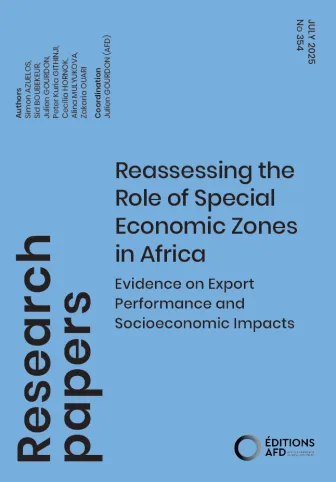Share the page
Reassessing the Role of Special Economic Zones in Africa - Evidence on Export Performance and Socioeconomic Impacts
Published on

This study evaluates the role of Special Economic Zones (SEZs) in Africa using newly compiled datasets covering over 230 zones across 43 countries. It examines SEZ impacts on export diversification, technological sophistication, market penetration, and integration into global value chains, while also assessing their influence on local household welfare. Findings show that SEZs significantly improve export sophistication and market access, but their contribution to product diversification and regional value chain participation remains limited. Empirical evidence from household-level data reveals that proximity to SEZs correlates with measurable wealth gains, better access to services, and improved housing quality. These benefits are broadly distributed, suggesting that SEZs can enhance welfare without exacerbating inequality. However, job creation —particularly for women— varies by sector and zone design. The study concludes that governance structure, incentive strength, and alignment with regional and sustainability goals are key to maximizing SEZ performance.
Useful Information
-
Authors
-
Simon AZUELOS, Sid BOUBEKEUR, Peter Kuria GITHINJI, Cecília HORNOK, Alina MULYUKOVA, Zakaria OUARI, Julien GOURDON
-
Coordinators
-
Edition
-
354
-
Number of pages
-
60
-
ISSN
-
2492 - 2846
-
Collection
-
Research Papers
